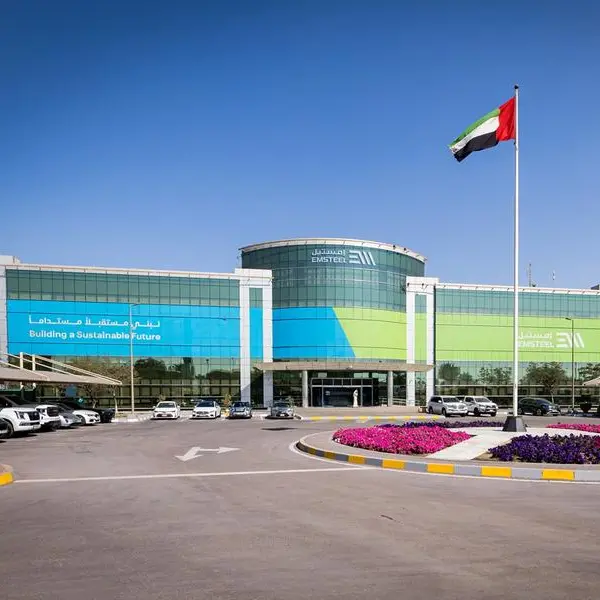PHOTO
- Cardiovascular diseases (CVD) are a growing health concern in the Middle East and GCC specifically. CVD account for 45% of overall deaths. CVD represent 42% of the deaths in Saudi Arabia[2]
- Coronary heart disease constitutes one of the main health problems in Saudi Arabia, representing the third most common cause of hospital-based mortality second to accident and senility[3]
- Awareness of CVD in Saudi Arabia is crucial to driving strong early intervention programs
- Adopting a healthy lifestyle helps prevent heart diseases[4]
Dr. Alaa El Din Khalil Ibrahim Ahmed – Consultant Cardiovascular Disease Non Invasive said: Cardiovascular diseases have been attributed to being the leading cause of death worldwide. More people worldwide die annually from CVDs than from any other cause. An estimated 17.5 million people died from CVDs in 2012, which represents 31% of all global deaths. Of these deaths, an estimated 7.4 million were due to coronary heart disease and 6.7 million were due to stroke.[5]
In Saudi Arabia, CVDs continue to represent the leading cause of death.[6] According to reports from 2008 to 2010, total of 50,213 men and 42,790 Saudi women with the disease visited primary healthcare centers. In addition, 167,499 people with ischemic heart disease and 140,322 with rheumatic heart disease visited hospitals during 2010.[7]
Generally, CVDs are a group of disorders affecting the heart and blood vessels, and range from diseases of the blood vessels supplying the heart muscle, brain, arms and legs, damage to the heart muscle and heart valves, malformations of heart structure as well as blood clots. The most important risk factors of heart disease to consider are unhealthy diet, physical inactivity, tobacco use. Such risk factors may show up in individuals as raised blood pressure, raised blood glucose, raised blood lipids, and overweight and obesity.[8]
Aspirin therapy is a prevention measure that can reduce the risk of major CVD events such as heart attacks and strokes. It can be used as a secondary prevention measure among individuals who have experienced a heart attack or stroke to prevent additional events.[9]
CVDs can affect people of all ages and population groups. To combat the rising trends across the Kingdom, it is important the individuals understand the lifestyle implications that lead to a minimizing CVD risk. Adopting a healthy lifestyle are considered some of the key prevention steps individuals can take to reduce risk. These include physical activity and regular exercise, stopping smoking or the use of tobacco as well as balancing a healthy nutrition and diet.[10]
There is a need for increased government investment through national programs aimed at prevention and control of CVDs and all chronic diseases.[11]
This is in line with the Kingdom’s 2030 vision of developing a more robust healthcare system that aims at optimizing and better utilizing the capacity of hospitals and healthcare centers, to enhance the quality of preventive and therapeutic healthcare services.
Individuals and readers are encouraged to check with their physicians before taking Aspirin and any other medication.
-Ends-
About Dr. Alaa El Din Khalil Ibrahim Ahmed – Consultant Cardiovascular Disease Non Invasive at the International Medical Center
Dr. Alaa El Din Khalil Ibrahim Ahmed is a Consultant none invasive cardiologist at the International Medical Center (IMC) in Jeddah. His duties cover reporting transthoracic echo (average 30 cases daily), doing TEE (traneosophogial echo) and intraoperative echo (average 10 -15 cases /month), along with Dobutamin stress echo (average 15 cases /month). He covers cardiology OPD (5 CLINICS /WEEK), by treating and following up patients in cardiology ward. Dr. Alaa is also responsible for the CME in the cardiology department and is the instructor for BASIC ECG courses that are held 3 times annually.
[1] World Health Organization |Saudi Arabia | http://www.who.int/nmh/countries/sau_en.pdf
[2] Cardiovascular disease risk profile among young Saudi women of Al-Qassim, Saudi Arabia: A cross-sectional study | https://www.ncbi.nlm.nih.gov/pmc/articles/PMC4791155/
[3] Prime Research Journals | Cardiovascular diseases in Saudi Arabia; Taha Abdullah Kumosani, Mohamed Nabil Alama and * Archana lyer
[4] American Heart Association | How to help prevent heart disease | http://www.heart.org/HEARTORG/HealthyLiving/How-to-Help-Prevent-Heart-Disease---At-Any-Age_UCM_442925_Article.jsp
[5] World Health Organization | Cardiovascular Diseases (CVDs) Fact sheet | http://www.who.int/mediacentre/factsheets/fs317/en/
[6] World Health Organization | Saudi Arabia | http://www.who.int/nmh/countries/sau_en.pdf
[7] Ministry Of Health (MoH) | Cardiovascular Diseases Cause 42% of Non-Communicable Diseases Deaths in the Kingdom| http://www.moh.gov.sa/en/ministry/mediacenter/news/pages/news-2013-10-30-002.aspx
[8] World Health Organization | Cardiovascular Diseases (CVDs) Fact sheet | http://www.who.int/mediacentre/factsheets/fs317/en/
[9] Journal of the American Heart Association | Use of Aspirin for Primary and Secondary CVD prevention in the US | http://jaha.ahajournals.org/content/3/4/e000989
[10] Ministry of Health (MoH) | Cardiovascular Diseases Cause 42% of Non-Communicable Diseases Deaths in the Kingdom| http://www.moh.gov.sa/en/ministry/mediacenter/news/pages/news-2013-10-30-002.aspx
[11] World Health Organization | Cardiovascular Diseases (CVDs) Fact sheet | http://www.who.int/mediacentre/factsheets/fs317/en/
© Press Release 2017




















